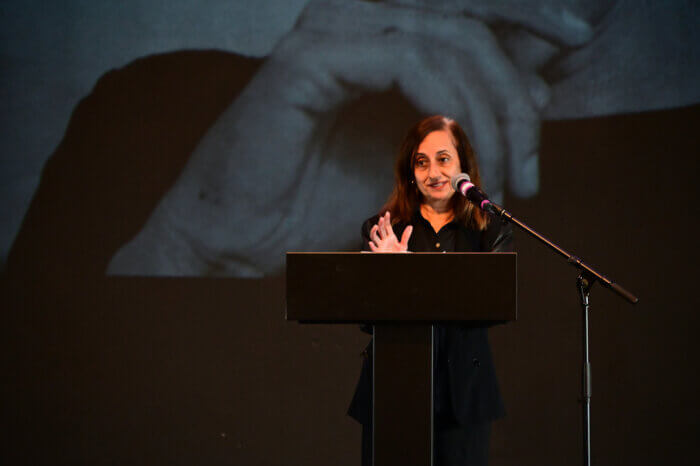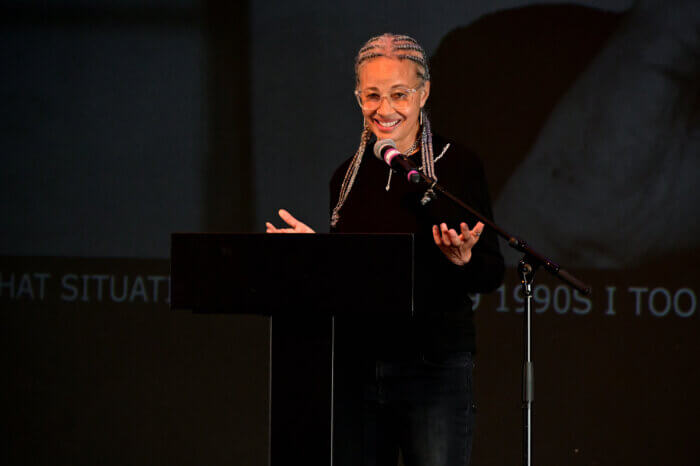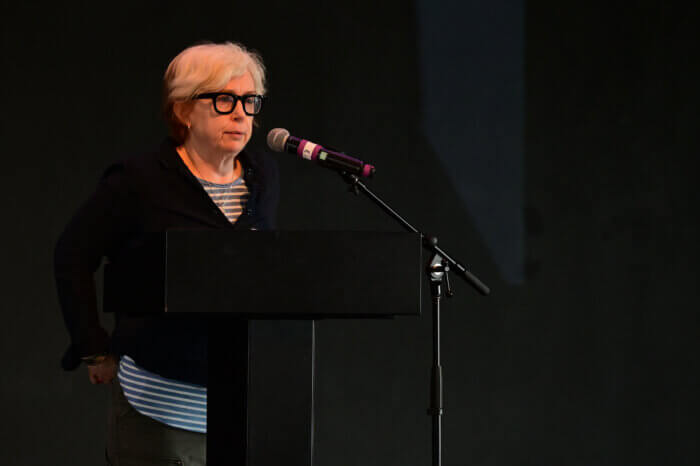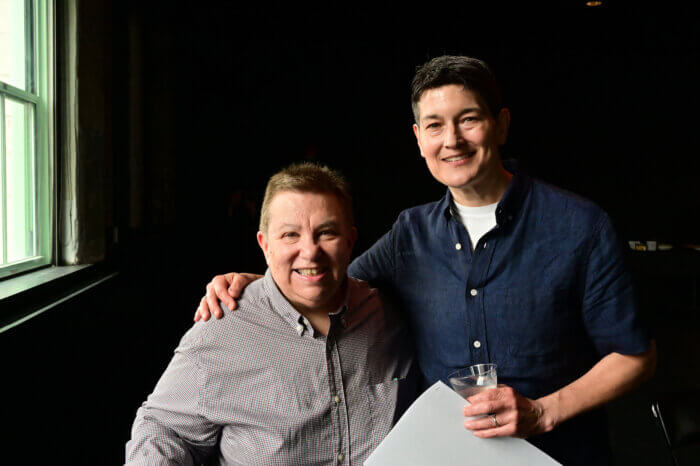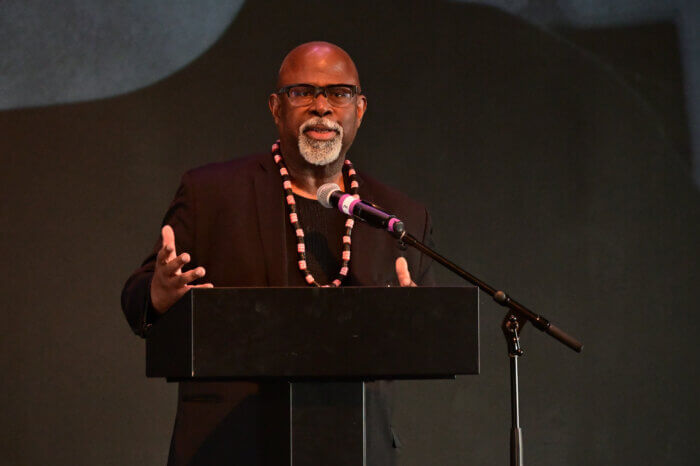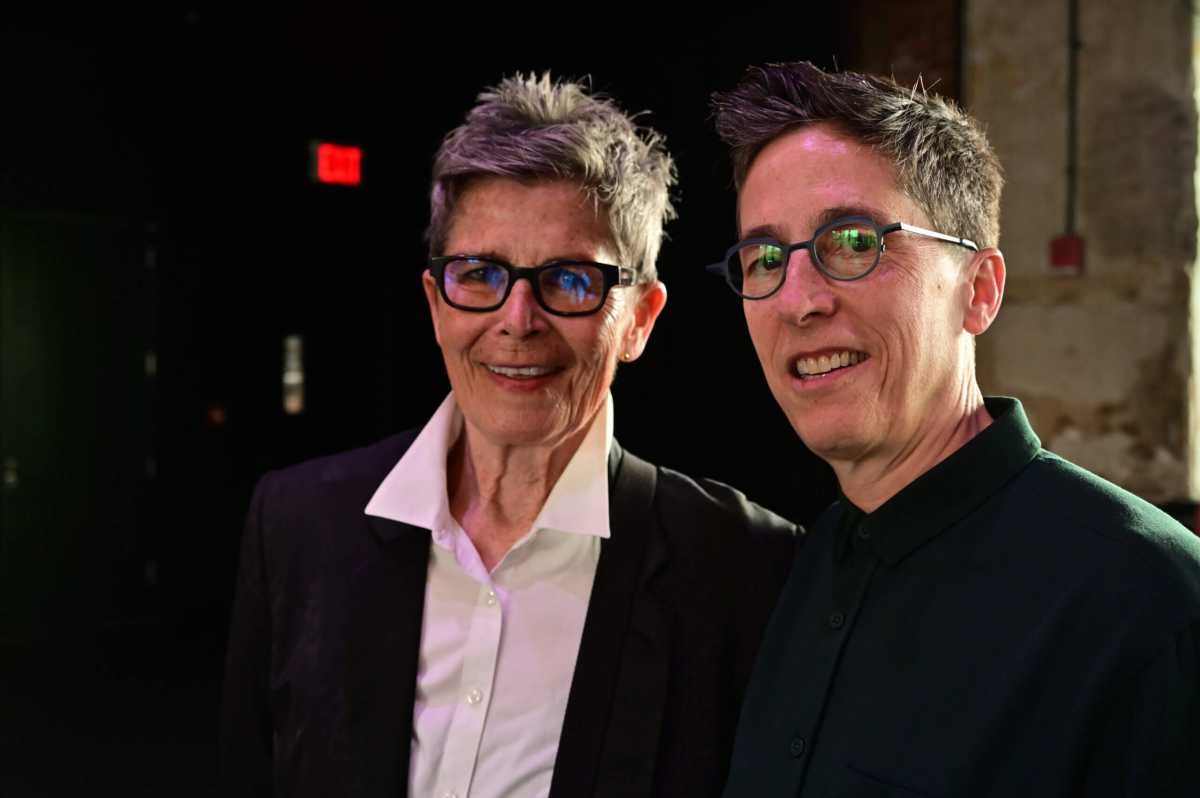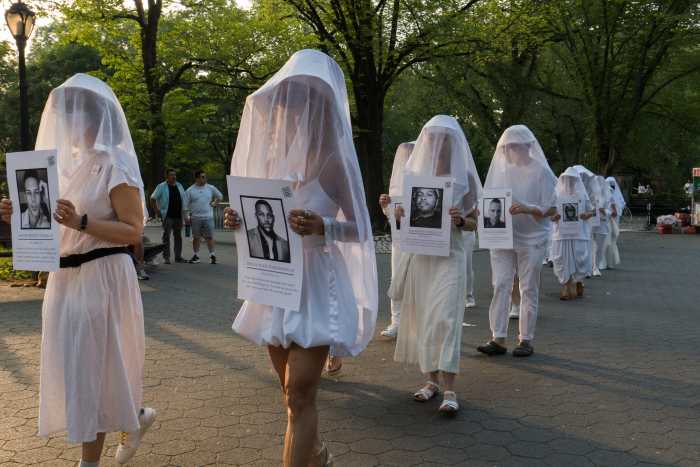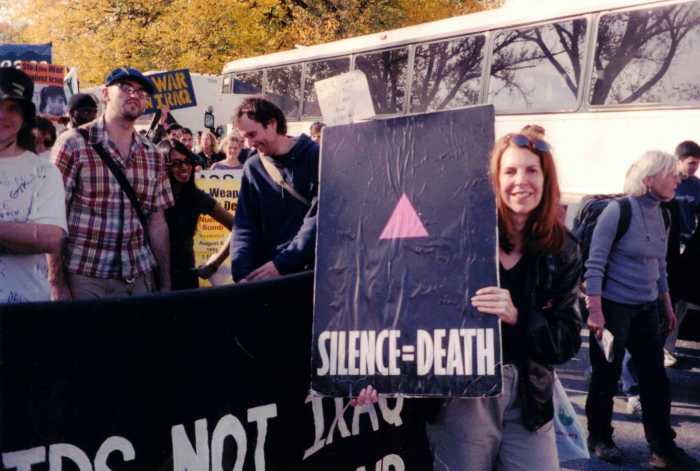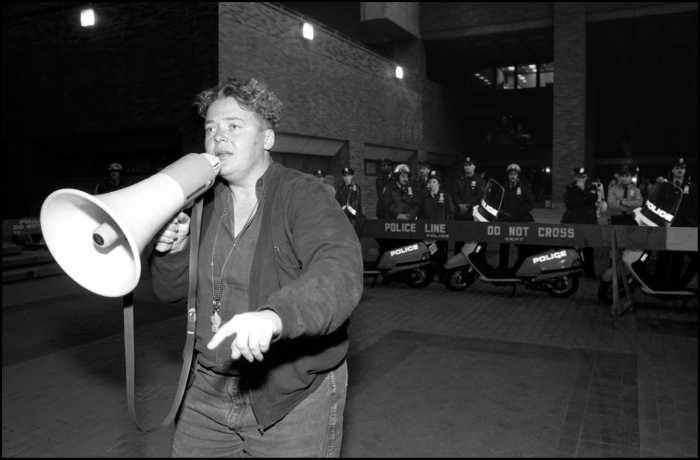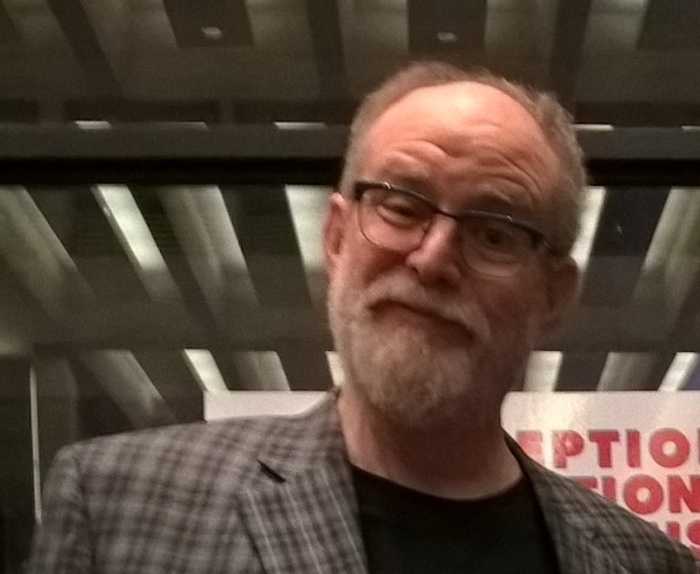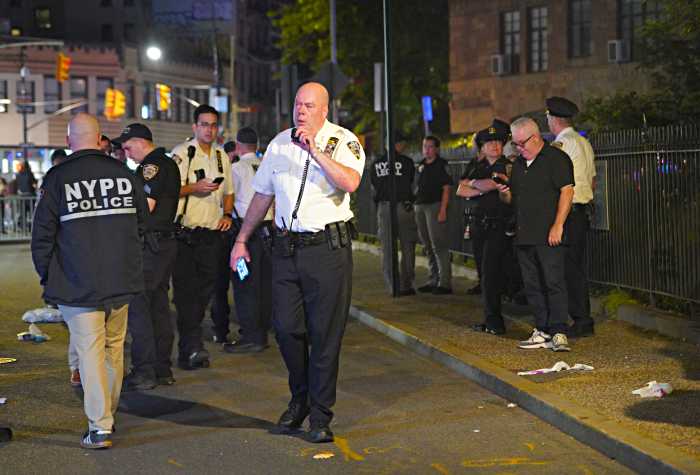A giant image of Urvashi Vaid graced the screen on the back wall of the black box theater at Performance Space NY on April 16. Vaid died last May, but her words and spirit were present at the marathon reading of her book “Virtual Equality,” curated by writer and activist Sarah Schulman.
“Virtual Equality: The Mainstreaming of Gay & Lesbian Liberation” is a deeply researched history, by a lawyer, scholar, and lesbian of color, and a passionate personal examination and search for what “liberation” really means, and to whom.
More than 30 writers, artists, educators, and friends gathered for a good old-fashioned East Village marathon, reading passages from Vaid’s work, first published in 1995, and still in print.
The audience changed and grew throughout the afternoon, with an ebbing and flowing tide of mostly women, of all ages and genres. Some stayed for the entire 4-hour event, knowing that at a marathon (not a sprint) it’s okay to quietly get up for a break, a snack or beverage, or to greet friends.
Vaid’s spouse, comedian and activist Kate Clinton, her partner of more than 30 years, talked about their life together, and gave us “the backstory, because I can: the lows and highs, the despair and joy, the times when Urvashi would wrestle her imposter self into the fetal position.”
Clinton said Vaid’s life and work are being documented in film, with a short film about Vaid’s life in Provincetown to be presented at the Provincetown Film Festival, and a full-length documentary currently being made by Nancy Kates (“Regarding Susan Sontag,” “Brother Outsider: The Life of Bayard Rustin”). And, Clinton said, The National LGBTQ+ Women’s Community Survey, which Vaid helped found, will be released this June.
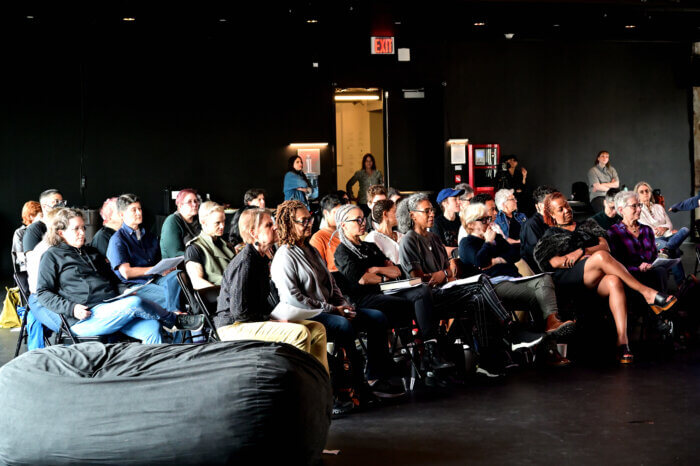
Selections from Vaid’s book were read in chronological order, starting with the preface, in which we are introduced to a young Urvashi, 10 years old when Stonewall kicked off the modern gay liberation movement. Vaid gives us an overview of her life as an activist, lawyer, organizer, and tells us what drove her to write the book: “to gain a better understanding of the problems the gay political movement faces and, in part, to figure out how to bet use my own energies.
“Out of these observations came the idea of virtual equality — a state of conditional equality based more on the appearance of acceptance by straight American than on genuine civic parity.”
“Virtual Equality” takes readers through a detailed examination of the history of the gay and lesbian movement in the US from pre-World War II through the AIDS crisis and the growing influence of gays and lesbians in the political mainstream.
Each section was read by people who worked with Vaid, were influenced by her, as well as her sister, Rachna Vaid. Some readers began with personal anecdotes, others talked about her influence on their work.
Vaid was at the frontline of several progressive movements, from fighting for the rights of incarcerated people to working for feminist causes, economic opportunity, and people with HIV and AIDS, making sure that women and people of color were also heard.
As the AIDS crisis drew gays and lesbians together to create direct-action groups like ACT UP, Vaid experienced the era as both an activist and a leader of national organizations. From her point of view as a lesbian of color, she could see the groups sometimes left people out; how direct action alienated some, and getting candidates elected with their new political power did not lead to fundamental change.
Vaid also detailed how the right wing steadily worked against LGBTQ rights and kept count of how many laws were passed each year, specifically stripping rights from gays and lesbians, a stance the crowd recognized as a present-day issue.
The audience laughed and applauded, hissed at the mention of proven villains. A huge cheer arose at the recounting of ACT UP’s “die in” at St. Patrick’s Cathedral in 1989.
When “Virtual Equality” was published, President Bill Clinton, the first candidate to actively court the gay and lesbian vote, had been in office for a few years, and had disappointed many of the people who voted for him by not fulfilling promises he made on the campaign trail.
The last chapter in Vaid’s book is called “There Are Things to Do,” and it reads like a list of causes progressives continue to work for today, including:
“The right to live and work free from discrimination based on sexual orientation…
“The right of freedom from violence and harassment directed at us because of who we are;
“The right to privacy, defined as sexual autonomy and control over our sexual and reproductive lives without criminal sanction nor the dictate of government;
“The right to family, defined in the legalization of gay marriage and gay relationships…
“The right to health care, defined as nondiscriminatory access to care and the receipt of services…
“The right to live in peace as openly gay, lesbian, bisexual or transgender people.”
Readers in the marathon included Susan Allee, Bob Alotta, Jess Barbagallo, Lisa Baltazar, Eliza Bayard, Alison Bechdel, Michael Bennett, Jennifer Camper, Anne-Christine d’Adesky, August Eckhardt, Laine Elliot, Ariel Goldberg, Gayatri Gopinatri, David Grof, Jim Hubbard, Aruna Krishnakumar, Shelley Marlowe, Terry McGovern, Ann Meredith, Nancy Polikoff, Debbie Richards, Cindy Rizzo, Sarah Jane Stoner, Kendall Thomas, Rachna Vaid, Linda Villarosa, Ann Viitala, Jack Waters, Deborah Weinstein, Jana Welch, and Marissa Zalabak.
